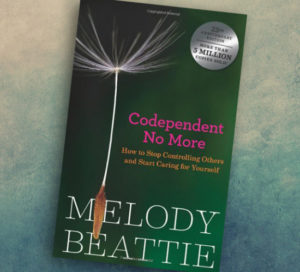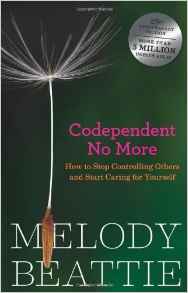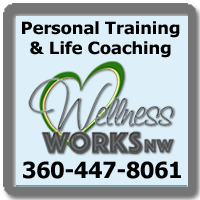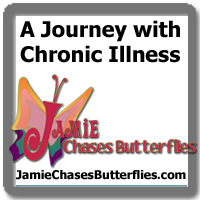 Work A Twelve Step Program
Work A Twelve Step Program
Chemical dependency and other compulsive disorders destroy beautiful, intelligent, sensitive, creative, loving people.
Some Twelve Step Programs:
-
- Alcoholics Anonymous – Group for people addicted to alcohol
- Al-Anon – Group for people affected by alcoholics
- Alateen – Group for teenagers affected by alcoholics
- Al-Atots – Group for children affected by alcoholics
- Narcotics Anonymous – Group for people addicted to drugs
- Nar-Anon – Group for people affected by drug addicts
- Overeaters Anonymous – Group for people who eat compulsively
- O-Anon – Group for people affected by food addicts
- Family Anonymous – Group for people affected by addicts and those with behavioral issues
- Emotions Anonymous – Group for people who want to live better with their emotional issues
- Sex Addicts Anonymous – Group for people who compulsively engage in sexual behavior
- Co-SA – Group for people affected by sex addicts
- Gamblers Anonymous – Group for people who compulsively gamble
- Gam-Anon – Group for people who are affected by compulsive gamblers
- Parents Anonymous – Group for parents who are abusive to their children or fearful that they will become abusive
Self-help support groups are not only meant to help people overcome compulsive disorders or the affects of these compulsions but also a place where people can learn how to live peacefully, happily and successfully.
The Twelve Steps
- We admit we are powerless over ____________________ and our life has become unmanageable. We have given our authority away and we have controlled others. We know we incapable of having power over others – what they do, say, think, feel, or don’t do, say, think or feel. We can only change ourselves.
- Acknowledge a higher power [God] who can make our craziness into sanity. Being thankful that [God] is with us for every step and [God] will meet our spiritual needs.
`
I must stop comparing myself to the people around me and live my life.
` - Make a decision to turn our will and our lives over to our Higher Power [God]. We have given our lives over to ____________________ and now we are putting it in the hands of our loving [God].
`
God is responsible for all of it, who I am, whats happened to me, where I shall go or how I will get there.
` - Make a searching and fearless moral inventory of ourselves. Take our eyes off others and look honestly at ourselves.
- See what we are working with
- How we have been affected
- What we are doing
- What our characteristics are
- Root out other problems
- Examine hurts and angers
- See what role we have played in our lives
- Examine our standards
- Prepare to dump guilt and forgive ourselves
- Accept ourselves and stop hating ourselves
- Start a path to change
- Confession: Admit to God, ourselves and to another human the exact nature of our wrongs.
- We are ready to have God remove our defects of character. Our defense mechanisms have hurt ourselves and others and we are willing to change.
- Humbly ask God to remove our shortcomings.
- Make a list of people we have harmed and become ready to make amends
- Don’t forget yourself
- Don’t get stuck in guilt – dump it.
 Make direct amends to such people wherever possible unless it would cause more harm to them or others.
Make direct amends to such people wherever possible unless it would cause more harm to them or others.
- Making amends is more than an apology; it includes paying back debts and changing behavior so we don’t hurt other people.
- Continue to take personal inventory and when we are wrong admit it quickly. Evaluate behavior. Congratulate good choices, feel good about them and thank God. Dump guilt. No hating ourselves.
- Seek through prayer and meditation to improve our relationship with our Higher Power [God]. Pray for knowledge of God’s will for us and the power to do it.
- Rumination is over-thinking or obsessing about situations or life events. Rumination can cause depression, anxiety and other compulsive problems.
- Meditation is a practice where an individual trains the mind or induces a mode of consciousness, either to realize some benefit or for the mind to simply acknowledge its content.
- Do this daily as many times as needed
- Learn to trust God
- As we take care of ourselves spiritually we will love ourselves and others and we will become a light for others.
At meetings:
- People just show up (no registration) and are themselves.
- People speak about steps, experiences, traditions or topics related to the problem.
- Slogans that work: “Let Go and Let God” “Easy Does It” “One Day At A Time”
- Listening, sharing and fellowship is key.
- Literature at home helps support what is learned at the group.
- Steps are meant to be worked on.
- We don’t do what we don’t want to do, find offensive or can’t do.
- Meetings are something we do for ourselves
- Health begets health so when others are choosing health they will inspire us and visa versa.
These groups are likened to an invisible boat with invisible oars filled with happy people on their way to a beautiful island. When you get in the boat (go to meetings) you will see the boat. When you grab the oars (work the steps) you will see the oars.
I have to admit I am thankful to God that I don’t have any close relationships with anyone that compulsively drinks and I do not have issues with drinking so Al-Anon and Alcoholics Anonymous are not groups that I would need to consider.
Although I have been in relationship with people with eating disorders I am not Eating Disorder Codependent. This is another thing I can thank God for!
I do recognize and even agree with my counselor that I am a highly codependent person. I am working on that.
After reading this chapter I am thinking about going to a local group called Celebrate Recovery.
Summer
The following questions are directly from the book. I didn’t write them.
AL-ANON IS IT FOR YOU?
Millions of people are affected by the excessive drinking of someone close. The following twenty questions are designed to help you decide whether or not you need Al-Anon.
- Do you worry about how much someone else drinks?
Yes __ No __ - Do you have money problems because of someone else’s drinking?
Yes __ No __ - Do you tell lies to cover up for someone else’s drinking?
Yes __ No __ - Do you feel that drinking is more important to your loved one than you are?
Yes __ No _ - Do you think that the drinker’s behavior is cause by his or her companions?
Yes __ No __ - Are mealtimes frequently delayed because of the drinker?
Yes __ No __ - Do you make threats, such as, “If you don’t stop drinking, I’ll leave you?”
Yes __ No __ - When you kiss the drinker hello, do you secretly try to smell his or her breath?
Yes __ No __ - Are you afraid to upset someone for fear it will set off a drinking bout?
Yes __ No __ - Have you been hurt or embarrassed by a drinker’s behavior?
Yes __ No __ - Does it seem as if every holiday is spoiled because of drinking?
Yes __ No __ - Have you considered calling the police because of drinking behavior?
Yes __ No __ - Do you find yourself searching for hidden liquor?
Yes __ No __ - Do you feel that if the drinker loved you, he or she would stop drinking to please you?
Yes __ No __ - Have you refused social invitations out of fear or anxiety?
Yes __ No __ - Do you sometimes feel guilty when you think of the lengths you have gone to to control the drinker?
Yes __ No __ - Do you think that if the drinker stopped drinking your other problems would be solved?
Yes __ No __ - Do you ever threaten to hurt yourself to scare the drinker into saying, “I’m sorry” or “I love you?”
Yes __ No __ - Do you ever treat people (children, employees, parents, co-workers, etc.) unjustly because you are angry at someone else for drinking too much?
Yes __ No __ - Do you feel there is no one who understands your problems?
Yes __ No __
If you answered yes to three or more of these questions. Al-Anon or Alateen may help. You can contact Al-Anon or Alateen by looking at your local phone directory.
________________________________
ARE YOU AN EATING DISORDER CODEPENDENT?
Use this questionnaire from Fat Is a Family Affair to evaluate the extent of your involvement with an under or overeater.
- Do you force diets?
Yes __ No __ - Do you threaten to leave due to weight?
Yes __ No __ - Do you check on the diet?
Yes __ No __ - Do you make promises based on pounds lost or gained?
Yes __ No __ - Do you hide food from the overeater?
Yes __ No __ - Do you worry incessantly about an undereater?
Yes __ No __ - Have you “walked on eggshells” so as not to upset the over/undereater?
Yes __ No __ - Do you throw food away so the overeater won’t find it?
Yes __ No __ - Have you excused the erratic, sometimes violent, mood swings resulting from sugar binges?
Yes __ No __ - Do you change social activities so the overeater wont be tempted?
Yes __ No __ - Do you manipulate budgets to control spending on food and clothing?
Yes __ No __ - Do you purchase and promote eating the “right” foods?
Yes __ No __ - Do you promote gyms, health spas, and miracle cures?
Yes __ No __ - Do you break into emotional tirades when you catch the overeater bingeing?
Yes __ No __ - Are you constantly disappointed when you see relapse?
Yes __ No __ - Are you embarrassed by the over/undereater’s appearance?
Yes __ No __ - Do you falsely console the over/undereater when he or she is embarrassed?
Yes __ No __ - Do you set up tests of willpower to test the over/undereater?
Yes __ No __ - Have you lowered your expectations of what you might like?
Yes __ No __ - Does your weight fluctuate with your loved one’s (you up, he or she down)?
Yes __ No __ - Have you stopped attending to your own grooming?
Yes __ No __ - Do you have many aches and pains, and preoccupations with health?
Yes __ No __ - Are you drinking heavily or using sleeping pills or tranquilizers?
Yes __ No __ - Do you bribe with food?
Yes __ No __ - Do you talk about the eater’s body to him or her or to others?
Yes __ No __ - Do you feel life will be perfect if the over/undereater shapes up?
Yes __ No __ - Are you grateful you aren’t “that bad”?
Yes __ No __ - Does his or her eating disorder give you license to run away?
Yes __ No __ - Does his or her eating disorder give you an excuse to stay?
Yes __ No __ - Do you “subtly” leave “helpful” literature around the house?
Yes __ No __ - Do you read diet books though you have no weight problem?
Yes __ No __ - Do you think you have the perfect home, except for the over/undereater?
Yes __ No __ - Do you use pills to get to sleep and escape worry?
Yes __ No __ - Have you spent much time in your own therapy talking about the over/undereater?
Yes __ No __
________________________________
PROGRESSION OF A CODEPENDENT PERSONALITY
This is also from Fat Is a Family Affair. It is meant to be a checklist to monitor you own progression.
Early Stages
- Often born of dysfunctional family and learned to “care” for others as measure of self worth.
- Failed to cure parents so will “cure” the over/undereater.
- Finds over/undereater who is “needy” so controls.
- Begins doubting own perceptions and wants to control eating to show decisiveness.
- Social life affected. Isolated self from community to “help” over/undereater.
Total: _____
Obsession
- Makes pleas and threats related to the eating behavior.
- Judges self and feels the cause of eating/starving.
- Hides food.
- Attempts controlling eating, hiding food, idle threats, nagging, scolding.
- Shows anger and disappointment regarding the over/undereaters promises.
Total: _____
Secret Life
- Becomes obsessed with watching and covering up.
- Takes over responsibilities of the over/undereater.
- Takes pivotal role in the communications, excluding between the over/undereater and others.
- Expresses anger inappropriately.
Total: _____
Out of Control
- Makes violent attempts to control eating. Fights with the over/undereater.
- Lets self go physically and mentally.
- Has extramarital affairs such as infidelity, workaholism, obsessive with outside interests.
- Becomes rigid, possessive. Appears angry most of the time and careful and secretive about home life.
- Has related illness and drug abuse: ulcers, rashes, migraines, depression, obesity, tranquilizer use.
- Constantly loses temper.
- Becomes sick and tired of being sick and tired.
Total: _____
________________________________
ADULT CHILDREN OF ALCOHOLICS
Are you an adult child of an alcoholic? Following are fourteen questions you may find relevant to your life and personality.
- Do you often feel isolated and afraid of people, especially authority figures?
Yes __ No __ - Have I observed myself to be an approval seeker, losing my own identity in the process?
Yes __ No __ - Do I feel overly frightened of angry people and personal criticism?
Yes __ No __ - Do I often feel I’m a victim in personal and career relationships?
Yes __ No __ - Do I sometimes feel I have an overdeveloped sense of responsibility, which makes it easier to be concerned with others rather than myself?
Yes __ No __ - Do I feel it is hard to look at my own faults and my own responsibilities to myself?
Yes __ No __ - Do I get guilt feelings when I stand up for myself instead of giving into others?
Yes __ No __ - Do I feel addicted to excitement?
Yes __ No __ - Do I confuse love with pity and tend to love people I can pity and rescue?
Yes __ No __ - Do I find it hard to feel or express feelings, including feelings such as joy and happiness?
Yes __ No __ - Do I find I judge myself harshly?
Yes __ No __ - Do I have a low sense of self-esteem?
Yes __ No __ - Do I often feel abandoned in the course of my relationships?
Yes __ No __ - Do I tend to be a reactor, instead of an actor?
Yes __ No __
________________________________
THE TWELVE STEPS OF A.A.
- We admitted we are powerless over alcohol—that our lives had become unmanageable.
- Came to believe that a Power greater than ourselves could restore our sanity.
- Made a decision to turn our will and our lives over to the care of God as we understand Him.
- Made a searching and fearless moral inventory of ourselves.
- Admitted to God, to ourselves, and to another human being the exact nature of our wrongs.
- We’re entirely ready to have God remove all these defects of character.
- Humbly asked Him to remove our shortcomings.
- Made a list of people we had harmed, and become willing to make amends to them all.
- Made direct amends to such people whenever possible, except when to do so would injure them or others.
- Continued to take personal inventory and when we were wrong promptly admitted it.
- Sought through prayer and meditation to improve our conscious contact with God as we understand Him, praying only for knowledge of His will for us and the power to carry that out.
- Having had a spiritual awakening as the results of these steps, we tried to carry this message to alcoholics, and to practice these principles in all our affairs.
Feel free to leave your comments below!
My name is Summer. That is how you can call me. I hope that I am a blessing to you. I am not perfect. I will fall again. But I am forgiven.
Do you know Jesus? Do want the Holy Spirit to fill you and give you understanding and salvation? Ask Him. Want someone to pray with you? Contact me.
If you would like to know Jesus as your friend, but want to make this amazing commitment by yourself please pray something like this:
Thank you Jesus that You are the Son of God, the God that created heaven and earth. Thank you Jesus that You came to earth in the form of a man so that You would be able to empathize with my humanity. Thank You that You did this in order to fulfill the promises You made at the foundation of the world.
I realize that I am a sinner and do things that hurt myself and keep myself away from you. Thank You that You died for my sins so that You could defeat death and bring me into Your life. Please forgive me.
I ask You to be Lord of my life. I ask you to heal my hurts and show me what my new life, empowered by You looks like. Thank You for Your mercy.
Amen
The Lord is with you always.




 Please wait...
Please wait...

